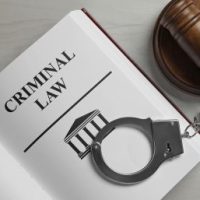What Is The Process For Exchanging Evidence In A Florida Criminal Trial?

Any person accused of a crime in Florida is presumed innocent until proven guilty, and the prosecution bears the burden of proof to show why they should be convicted of a charged crime. Additionally, a criminal defendant is entitled to certain measures of fairness during all pretrial, trial, and post-trial phases of a case. These are among the essential rights carried within our Constitution’s Bill of Rights.
To ensure these rights are observed carefully and maintain fair trials, courts across the United States and Florida follow a practice called “discovery”. The discovery process aims to level the playing field and make sure prosecutors share their evidence with the defendant, and vice versa. A defendant has a right to know about all potential evidence that may be used against them at trial. Attempts to “surprise” the other side with brand-new, never before seen evidence is the stuff of movies and TV shows, not Florida courts.
The discovery process works through the gathering of physical, DNA, scientific, forensic, and other types of evidence. It also involves the collection of witness testimony and identification of potential witnesses for trial testimony. Rule 3.220 of the Florida Rules of Criminal Procedure addresses the discovery process and how it is intended to play out in a criminal trial.
Some of the types of evidence that can be exchanged at the pretrial stages of a criminal trial include:
- Personal background of witnesses, including qualifications for expert witnesses;
- Foundation for a potential witness’s courtroom testimony;
- All documents related to the case, including those supporting the prosecution’s case, and those that the defendant believes may exonerate or mitigate against a finding of guilt;
- Identity of law enforcement officers involved in the criminal investigation, including their training and work histories;
- Forensic evidence such as fingerprints, blood samples, and drug test results.
Some evidence may be limited or barred from use at trial due to issues with relevance, confidentiality, or prejudice against either party. Smart defense attorneys will know when to file a Motion to Suppress Evidence that may fit these criteria, or was improperly obtained in violation of a defendant’s Constitutional rights.
The exchange of evidence in a Florida criminal trial can be at times routine, or hotly contested. This depends on the type of evidence, how it may affect a case or prejudice a jury, and whether it fits within the somewhat complex criteria required for admittance at trial.
The Orlando Criminal Defense Attorneys at Joshi Law Firm, PA Know the Rules of Criminal Procedure in Florida, and How to Use the Discovery Process to Your Advantage
While the exchange of discovery and evidence may seem straightforward, some attorneys are better at handling these steps than others and protecting their client’s interests. The experienced Orlando criminal defense attorneys at Joshi Law Firm understand how to protect your Constitutional rights in all phases of a criminal case, and how to get the most out of the pretrial discovery process. If you have been charged with any type of crime and have questions about your case, contact us today.
Source:
aclu.org/united-states-bill-rights-first-10-amendments-constitution

